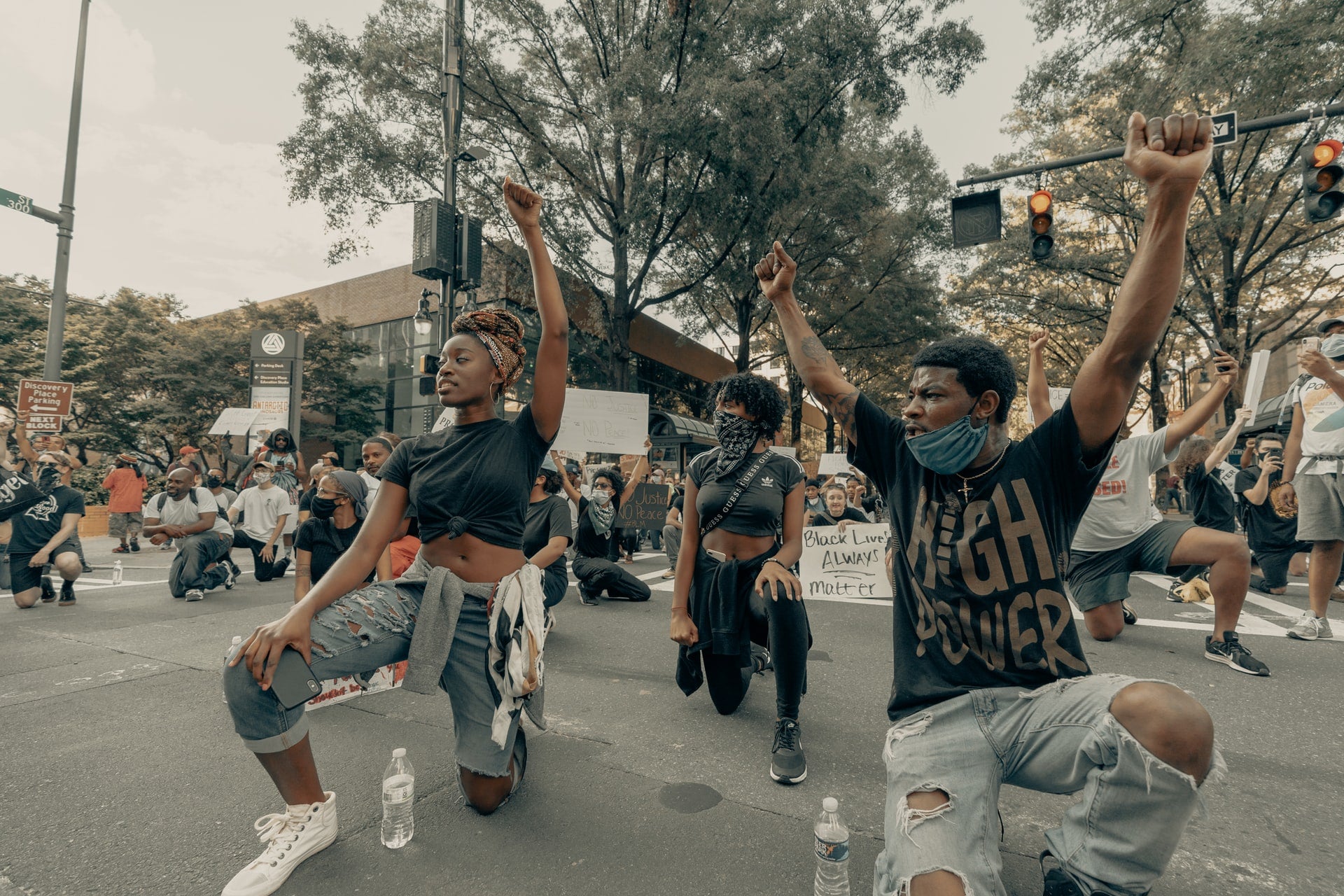On the seventh day of the national protests for racial equity that had put more than 40 American cities under curfew, a Washington Post headline noted, Dow jumps as investors keep focus on economy, not civil unrest. An analyst with OANDA was quoted, “The US riots, disturbing as they are, are also being discounted in the greater economic picture. Rightly so, without sounding insensitive, as they are unlikely to derail the expected US rebound.”
Where Wall Street analysts and traders were seeing riots, people of color and their allies were seeing a march of existential importance towards an equitable and just society. Those who empathize with the protests hear a call to confront the myriad ways that power in America is biased against people of color. Police brutality is one extremely troubling symptom, but every institution of power in America has racism woven into its fabric. This includes American business and corporate governance.
America’s capital markets are overwhelmingly white institutions. While more than half of all US households own some stock, major divisions appear when stock ownership is broken down by race. More than 60% of white households own stock, while only 30% of Black and Hispanic households do. According to the St. Louis Fed, households headed by White college graduates own 77% of all US stock holdings while households headed by Black and Hispanic college graduates own just 2.4%.
That our capital markets can easily “discount” massive popular demands for racial equity is telling. Perhaps investors don’t want racial equity to “derail” the economic rebound. Perhaps investors don’t think change will happen. Either way, our capital markets have spoken. Let’s be clear though—capital markets speak for white investors.
But why does it matter?
Our stock markets produce much more than just numbers that scroll across a ticker. They are the center of corporate power and accountability. Each share of stock that you own gives you another vote in corporate governance, a system known as “one share-one vote.” In the United States, owners of stock elect corporate directors who oversee corporations, select CEOs, and establish corporate priorities. Shareholding is so consequential that in his majority opinion in the Citizens United case, Justice Kennedy went so far as to defer to corporate shareholders to protect our political system by monitoring and intervening on corporate political spending “through the procedures of corporate democracy.”
The effects are easy to see at the top of the corporate hierarchy. There are only 5 Black CEOs in the entire Fortune 500. Despite efforts to diversify, corporate boardrooms remain exceedingly white and male. The Washington Post recently noted that 187 companies in the S&P 500 companies do not have a single black board member.
But the structural racism in corporate governance reverberates far deeper than the top tiers of corporations. It impacts workers hardest. Black and Hispanic households depend overwhelmingly on wages and paychecks to build their wealth, but investors and Wall Street analysts—overwhelmingly white constituents—consistently punish companies who dare announce pay increases for workers. Whether the company is WalMart or Google or American Airlines, this movie plays over and over again.
From there, impacts cascade throughout society, leaving working people across the board and working people of color in particular, in staggering precarity. We cannot ignore what the last few months have laid bare. A poll taken by Fortune in late May found that 24% of African American respondents reported losing their job while only 11% of white respondents did. Black Americans are twice as likely to die of COVID-19 as white Americans. And in the “normal” times of pre-pandemic America, the wealth of an average Black household was just one tenth that of the average White household.
I confess that I have never heard the words “structural racism” uttered at any corporate governance conference or dialogue that I have attended. Nor have I been courageous enough to raise it. But if there was ever a time to raise the issue, now is it. Corporate governance may not commit physical violence against people of color, but the very design of corporate governance eliminates their voices and causes real harm.
There is no easy solution. Structural racism by its nature is deeply embedded. The principle of “one share-one vote” is a bedrock norm of “good corporate governance” even though it is the very definition of plutocratic rather than democratic. Every level of the system from portfolio managers, to corporate advisors and lawyers, to directors and executives, to SEC commissioners, to hedge fund managers, to the judges on the DE Chancery Court is dominated by White people.
But we have to start somewhere. It’s time to acknowledge the problem and interrogate it. Investor pressure for topics like board diversity can help but that pressure will lack adequate force and credibility until people of color have proportionate corporate voting power. What if we centered corporate voting where people of color participate most – as workers? What would corporate governance look like if it was designed to be more democratic and less plutocratic? It’s time to start confronting these questions in the name of equity and justice—and good governance.


